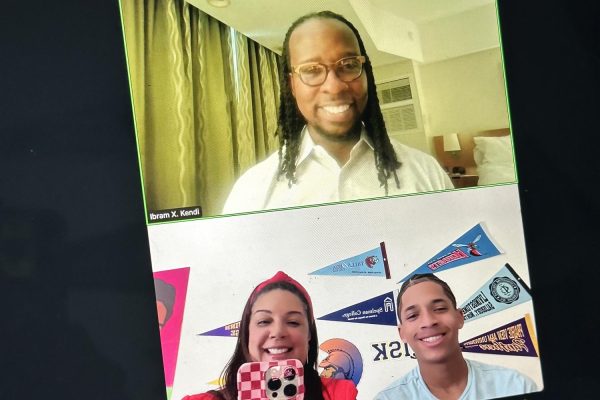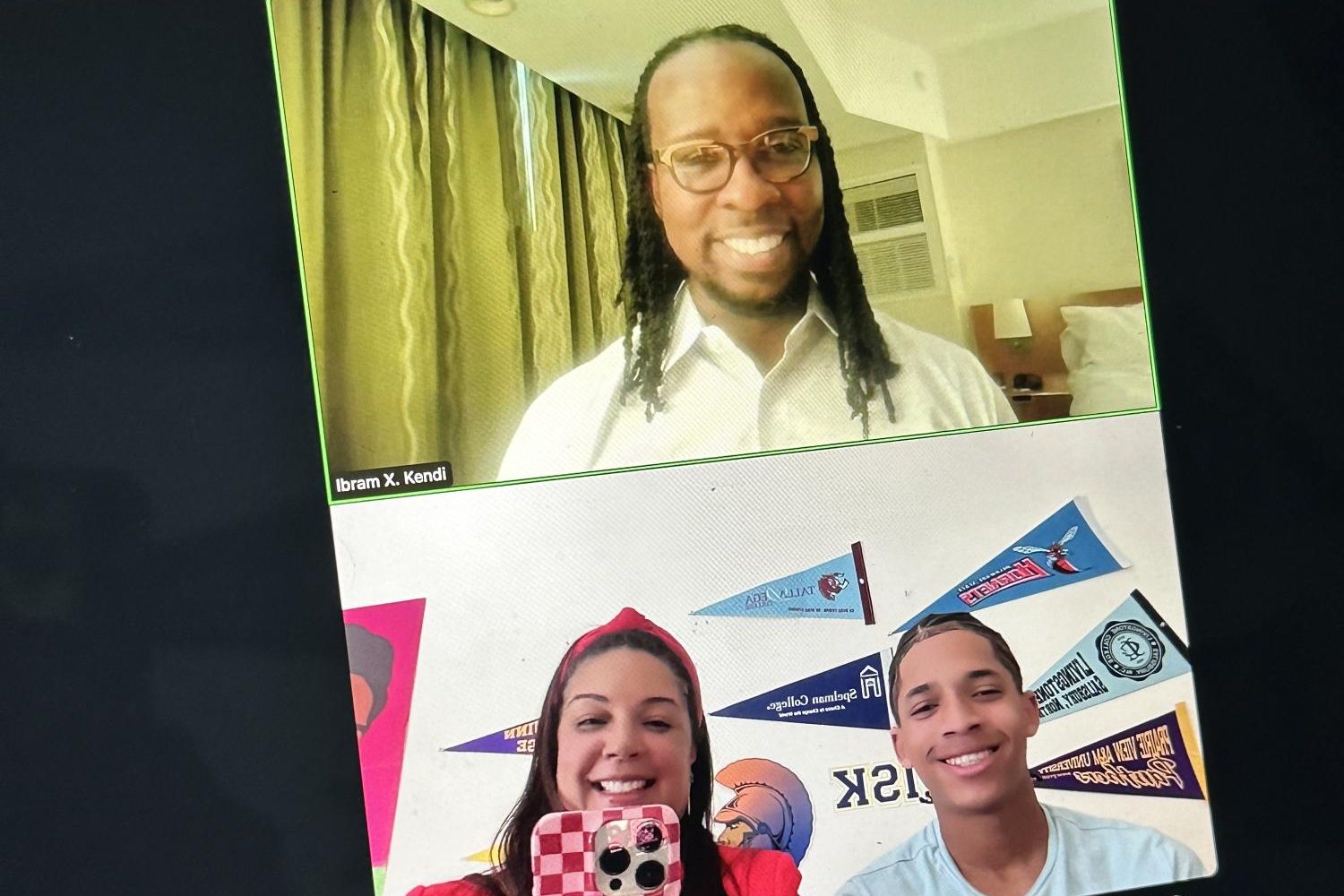Tamalpais High School held its third Stop and Learn of the year on Tuesday, May 20. This event featured guest speaker Ibram X. Kendi, an American author, historian, and anti-racist activist, and included all five schools within the Tamalpais Union High School District (TUHSD).
It was led by TUHSD Assistant Superintendent Kelly Lara and Tam senior and Black Student Union (BSU) Co-president Auvin Cole. The Black Student Union advocated for the Stop and Learn to take place, and worked with the administration to make it happen, Lara said.
The webinar was guided by three main questions, and focused on what it meant to be anti-racist, as well as highlighting ways to recognize personal thoughts and show up in the community as anti-racist.
Throughout the conversation, the moderators and Kendi covered defining factors of racism as well as situational advice when confronting racist actions.
Kendi described racism as “A power structure of policies that lead to racial inequity and injustice,” and as opposed to that, he described anti-racism as “a power structure of open doors that gives equal opportunity to everyone.”
“Racism is a structure like a house built upon policies that accept racist ideas in society,” Kendi said.
Kendi explained how being racist doesn’t just mean overtly expressing ideas or racial hierarchy or racial policy, but it can also be expressed through inaction, or by being a bystander. Bystanders passively allow racism to happen, according to Kendi.
Kendi said it is the bystander’s job to “not shy away from discomfort” when confronting racism.
Cole shared his own experiences about racism within Tam, and how racist ideas can be expressed more subtly, as a joke or comments, as is more common among teenagers.
“Jokes are one of the primary ways racist ideas are spread through our society today,” Kendi said.
However, this can be very harmful, especially in what is supposed to be a safe space for students to grow and learn.
Kendi then explained how “the heartbeat of being racist is denial,” and to combat this, students and individuals need to take accountability.

Cole said that his idea of an anti-racist school is one that “holds everyone accountable for their actions. There needs to be consequences for bad behavior, otherwise nothing will change.”
Kendi wrapped up the webinar by advising students who are working on being anti-racist, and explaining steps they can take. He suggested that students organize and support student unions, create anti-racist policies and practices, study and read about racism, and reject the idea that high schoolers “aren’t ready” to talk in-depth about racism.
To create a community that is safe and accepting of everyone, “it is critically important for students to ensure they are treating everyone equitably,” Kendi said.






